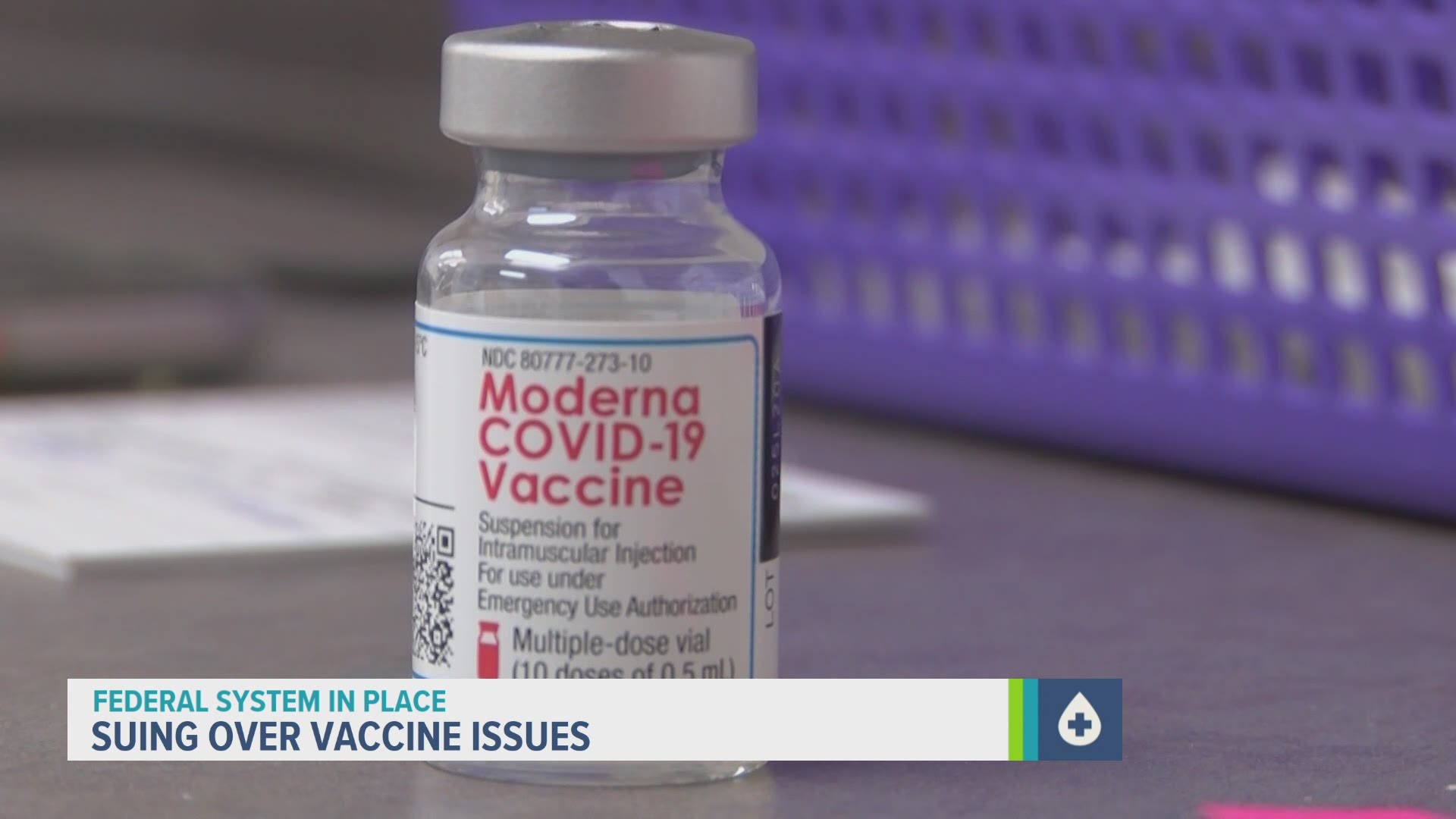DES MOINES, Iowa — Experiencing side effects from any of the authorized COVID-19 vaccines is normal, but what if a reaction is so extreme that a person decides to sue?
It's an option albeit the lawsuit isn't likely to end in the favor of the person who experienced the side effect.
There are two federal programs that deal with lawsuits related to vaccines: the National Vaccine Injury Compensation Program (VICP) and the Countermeasures Injury Compensation Program (CICP).
VICP started accepting claims in 1988 from people who had adverse side effects to flu or HPV shots.
CICP deals with vaccines and other medications that are used to treat people during pandemics, epidemics or during a security threat.
These lawsuits are sent to federal court, where an administrative branch hears the cases. That's where the claim is either approved or denied.
So, why set up programs like these?
"There are policy reasons for that, which is that we want to encourage, you know, in times of crisis, we want to encourage manufacturers to you know, get these things out there without fear of liability, that that makes sense," said Zach Hermsen, a Des Moines attorney who has handled cases before VICP before.
Hermsen said there are decades of case law he can use to guide clients through their cases to see what will stick and court and what won't.
However, since COVID-19 is so new, it doesn't have the same transparency.
"It'd be nice if we knew, you know, what factors were contributing to successful claims, what factors were contributing to unsuccessful claims? What factors are they looking at? Statistics, you know," Hermsen said. "I think not only for lawyers but, you know, others, it'd be nice to know that the detailed statistics, you know, breakdowns of here, the claims being made here, the injuries being alleged here is the success rate of those."
So yes, individuals can sue if they have a bad reaction to the COVID-19 vaccine, but lawsuits like these aren't very successful. Between 10-25% of them actually see the money paid out.
► Download the We Are Iowa app or subscribe to Local 5's "5 Things to Know" email newsletter.
► Subscribe to Local 5 News on YouTube

